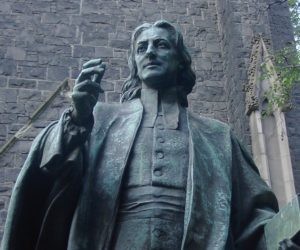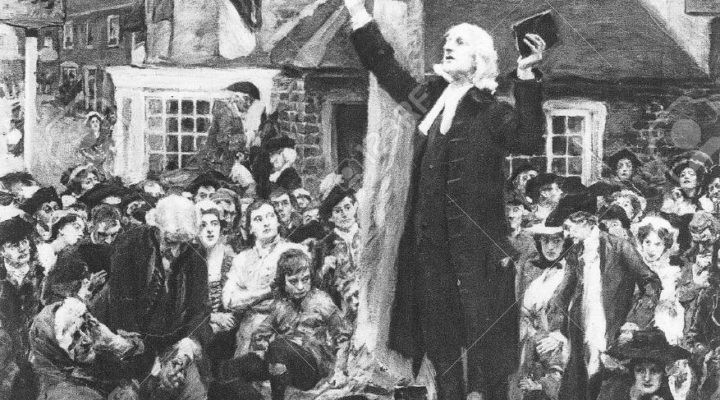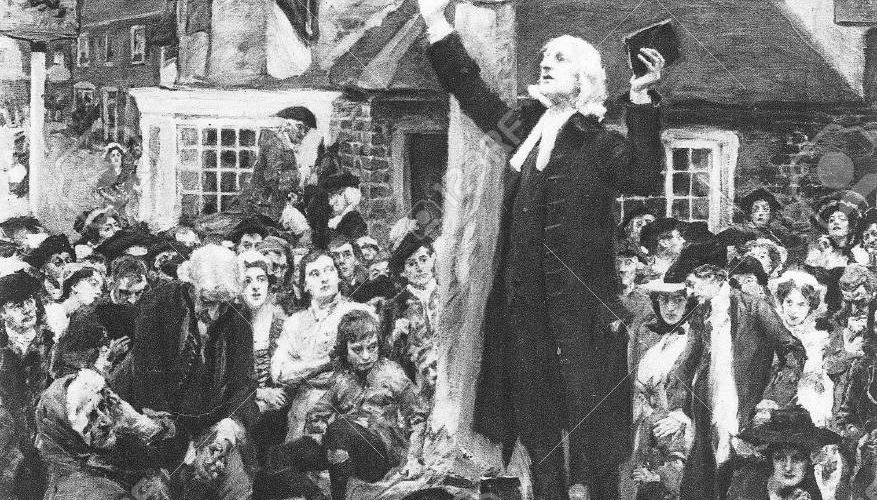Many of today’s United Methodists may not recognize it, but they’re still following the framework of Christian discipleship their founder John Wesley laid down for his “united societies” in the 18th century. The framework, known as “The General Rules,” comprises part of the denomination’s official doctrine and is one of the few parts of United Methodist beliefs that may not be altered by legislative action.
Briefly paraphrased, the General Rules are:
- Do no harm.
- Do good.
- Attend upon the ordinances of God.
According to church history, Wesley laid down the General Rules after a group of some eight to 10 people came to him for instruction on “how to flee from the wrath to come,” that is, how to save their souls. Schooled from childhood by his devout mother, Susanna Wesley, in the values of order and discipline, Wesley saw in their request a need for a structure to educate, inspire and support fledgling Christians in “the way of salvation.” Thus was born the United Society, the first of its kind in Europe and Colonial America, as a community of faith to nurture followers of Jesus Christ. The General Rules formed the society’s charter.

John Wesley
Wesley also realized these new Christians needed regular contact with more mature Christians as a bulwark against the temptations of the world. So he divided his United Society into smaller groups known as “classes” or “class meetings” at which the General Rules were regularly reviewed as the standard of discipleship. When the class leader asked, “How is it with your soul?” a Methodist was expected to give an account of his or her Christian practice according to the standards set out in the General Rules.
Class meetings largely were superseded in the 19th and 20th centuries by the Sunday school movement that put discipleship teaching into a broader context. Class meetings retained their appeal in places such as the Korean Methodist Church, but they waned elsewhere.
For several decades, the General Rules became more the province of ordained clergy, who vow to uphold them as part of the ordination process. As the threat of schism loomed over the UMC in the 21st century, however, United Methodist bishops identified the General Rules as a way to foster unity and dispatched Bishop Reuben P. Job, former world editor of The Upper Room devotional magazine and a recognized Methodist spiritual guru, to write a book titled Three Simple Rules.
In translating Wesley’s 18th century concepts for 21st century readers, however, Job made one change that affronted some readers: changing the third rule to read “Stay in love with God.” Critics complained that Job’s shorthand negated the importance that Wesley, an Anglican priest, placed upon institutional practices such as:
- The public worship of God.
- The ministry of the word, either read or expounded.
- The Supper of the Lord.
- Family and private prayer.
- Searching the Scriptures.
- Fasting or abstinence.
Although they can be briefly stated, the first two rules are simple but not simplistic, either. Wesley’s specifications, captured in the church’s collection of doctrine and laws known as the Book of Discipline, lists as inappropriate some practices that many United Methodists use today. For example, the first rule — do no harm — specifies as evil:
- “The taking of the name of God in vain.”
- “The profaning the day of the Lord, either by doing ordinary work therein or by buying or selling.”
- “Drunkenness: buying or selling spirituous liquors, or drinking them, unless in cases of extreme necessity.”
- “Slaveholding; buying or selling slaves.”
- “Fighting, quarreling, brawling, brother going to law with brother; returning evil for evil, or railing for railing; the using many words in buying or selling.”
- “The buying or selling goods that have not paid the duty.”
- “The giving or taking things on usury — i.e., unlawful interest.”
- “Uncharitable or unprofitable conversation; particularly speaking evil of magistrates or of ministers.”
- “Doing to others as we would not they should do unto us.”
- “Doing what we know is not for the glory of God, as:
- “The putting on of gold and costly apparel.”
- “The taking such diversions as cannot be used in the name of the Lord Jesus.”
- “The singing those songs, or reading those books, which do not tend to the knowledge or love of God.”
- “Softness and needless self-indulgence.”
- “Laying up treasure upon earth.”
- “Borrowing without a probability of paying; or taking up goods without a probability of paying for them.”
There’s hardly a Methodist alive today who doesn’t engage in one or more of these activities. Ironically, however, the coronavirus pandemic gave bishops and pastors a new opportunity to inspire and educate church members about “doing no harm,” invoking it as the reason for suspending in-person worship services, wearing masks in public, frequently sanitizing, and practicing physical distancing. Even now, as churches are pondering whether to resume in-person gatherings using COVID-19 restrictions, bishops and pastors continue to stress that the UMC’s first, most critical duty in the pandemic is to protect the community from coronavirus infection.
“The coronavirus pandemic gave bishops and pastors a new opportunity to inspire and educate church members about ‘doing no harm.’”
While Wesley would wince and scowl at many of today’s social interactions that contravene his instructions, he’d have little quarrel with how today’s United Methodists carry out his second General Rule: doing good.
Scores of community service institutions from hospitals to colleges and universities to community centers, children’s and retirement homes exist because of the financial and volunteer support of United Methodists. Countless child care centers, feeding ministries, prison ministries, elder care and other missions are supported by local congregations around the world. The United Methodist Committee on Relief, housed with the General Board of Global Ministries, represents the denomination’s single most effective mission for “doing good.”
Charity Navigator gives UMCOR its top rating of four stars, with ranking in the top 10% for financial support, transparency and accountability. The UMC pays all UMCOR’s administrative costs out of its church budget so that 100% of all donations for relief, recovery and development go to ease suffering around the world. UMCOR often is among the first non-governmental organizations on the ground to provide relief after a major disaster, but its most successful ministry is that of long-term recovery. Government reports find UMCOR is often the longest-serving recovery agency present after a catastrophe, helping disaster victims navigate the byzantine maze of resources that can help them rebuild their shattered lives.
“United Methodists almost to a person can be faulted for failing to meet Wesley’s admonishment for ‘doing good.’”
Church leaders, especially bishops, lately stress their hope that the widespread good done by United Methodists will keep them together. As the worldwide denomination remains riven with turmoil at a possible schism, however, United Methodists almost to a person can be faulted for failing to meet Wesley’s admonishment for “doing good.”
That rule states: “By running with patience the race which is set before them, denying themselves, and taking up their cross daily; submitting to bear the reproach of Christ, to be as the filth and offscouring of the world; and looking that men should say all manner of evil of them falsely, for the Lord’s sake.”
The church’s struggles with racism, human sexuality, church governance and institutional preservation attest that perhaps it’s time for United Methodists to look more closely at the “three simple rules” that John Wesley wrote to guide their Christian discipleship.
Cynthia B. Astle is a veteran journalist who has covered the worldwide United Methodist Church at all levels for more than 30 years. She serves as editor of United Methodist Insight, an online journal she founded in 2011.


